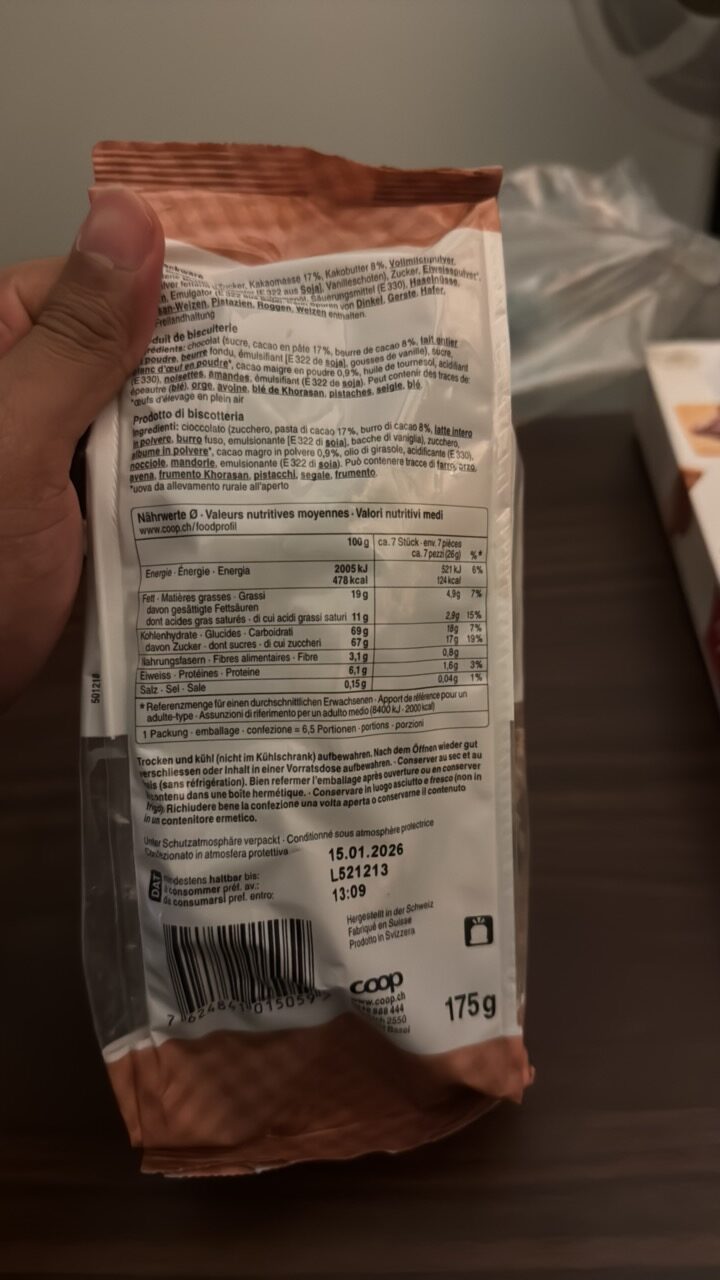
Barcode: 7624841015059
unknown
HALAL
📝 Reason: The product does not contain any Haram ingredients or E-codes listed as Haram. Ingredients marked as Doubtful (emulsifier and acid) do not have clear sources that would classify them as Haram. Therefore, the product is considered Halal. Islamic sources emphasize the permissibility of all things unless proven otherwise (Quran 2:168).
📄 Certificates: None
Ingredients:
Details
Understanding the Halal Status of Unknown Product
The Unknown product is classified as Halal, meaning it adheres to Islamic dietary laws. This is significant for consumers seeking Halal-certified products. The main reason for this classification is the absence of any Haram (forbidden) ingredients or clearly Haram E-numbers. According to Islamic teachings, all food is permissible unless proven otherwise (Quran 2:168), which offers a solid foundation for interpreting the Halal status of food products.
Key Ingredients and Their Halal Status
Let’s break down the ingredients found in the Unknown product, detailing the Halal status of each and any relevant E-numbers.
- Chocolate: Generally considered Halal unless contaminated with Haram substances.
- Sugar: Typically Halal, but can be processed with bone char, which may lead to concerns.
- Cocoa Paste: This ingredient is derived from cocoa beans and is generally Halal.
- Cocoa Butter: Like cocoa paste, it is derived from cocoa beans and is considered Halal.
- Milk: Commonly viewed as Halal unless contaminated with any Haram substances.
- Emulsifier: Its source is unspecified; it may be derived from Halal or Haram sources, categorizing it as doubtful.
- Vanilla: Generally Halal, unless alcohol is used in the extraction process.
- Egg White: Generally Halal unless otherwise contaminated.
- Cocoa Powder: Derived from cocoa beans, thus Halal.
- Sunflower Oil: Typically Halal unless there is contamination.
- Acid: The type of acid isn’t specified; it could derive from Halal or Haram sources hence categorized as doubtful.
- Hazelnuts: Typically Halal unless contaminated.
- Almonds: Generally Halal, unless subjected to contamination.
- Spelt: Generally Halal unless contaminated.
- Pistachios: Typically Halal unless there’s contamination.
- Rye: Generally Halal unless contaminated.
- Wheat: Commonly Halal unless contaminated.
- Flour: Typically Halal unless contaminated.
- Butter: Generally considered Halal unless there is contamination.
- Milk Powder: Similar to milk, it is generally Halal unless contaminated.
- Vanilla: Again, considered Halal unless alcohol is used in extraction.
Conclusion
In summary, the Unknown product is Halal based on the evaluation of its ingredients. The absence of clear Haram elements strengthens its Halal status. For consumers, it is crucial to be aware of doubtful ingredients such as emulsifiers and acids that lack specified sources. Thus, while the Unknown product is largely Halal, individuals are recommended to adopt personal due diligence, especially regarding the sourcing of the ambiguous ingredients.
Always consult with your dietary preferences and Halal certification before consuming any product to ensure it meets your individual standards.
